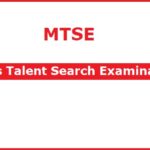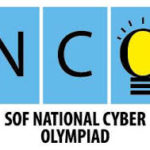IJSO stands for the International Junior Science Olympiad. It is an annual competition in the field of Natural Science for students. Please note that this Olympiad consists of both individual and team events. The Olympiad consists of three events i.e. MCQ, theory test, and lab tests. All these tests will be conducted on three separate days. The age of students looking to apply for this Olympiad should be less than 15 years. Complete details related to the International Junior Science Olympiad (IJSO) 2023 are given below.
IJSO 2023 Overview
|
Olympiad |
IJSO |
|
Full form |
International Junior Science Olympiad |
|
Location |
Bangkok, Thailand |
|
Date |
1st to 10th December 2023 |
|
Official website |
https://www.ijsoweb.org/ |
IJSO 2023 Important Dates
The tentative dates related to the International Junior Science Olympiad (ISO) 2023:
| Main Events | Tentative Dates |
| Payment deadline | Before September 1, 2023 |
| Last date to fill personal info of participants | October 1, 2023 |
| Last date to fill flight details | Before October 27th, 2023 |
| IJSO 2023 | December 1st to 10th December 2023 |
Eligibility Criteria
The candidates who want to apply need to ensure that they meet the following eligibility criteria before filling the application form.
Age Limit
- The age of a candidate should be less than 15 years.
Citizenship
- The aspirant should have a valid passport of the respective country or the applicant must be in the education system of that country for a minimum of one academic year.
- A normal team consists of six students and three leaders. If a normal team cannot be fulfilled, a minimum team of three students and one leader is allowed to participate in IJSO. Teams consisting of less than three members do not qualify for team awards.
- Please note that the candidates are not allowed to use their own collection of mathematics, chemistry, physics formulae.
- Each participating country that has either participated with a team or sent an observer to the IJSO in one of the previous two years, is invited to send a delegation of six students and three team leaders.
International Junior Science Olympiad (IJSO) 2023 Application Form
The application process of International Junior Science Olympiad will release in online mode only. Those who want to apply need to submit the application form through the official website. All the necessary details related to the application process are as follows.
- Those teams, who are looking to apply need to visit the official website in order to apply.
- Then, aspirants need to submit the request for participation to country specific Olympiad website.
- In case of 1st time ever for IJSO, submit the request is compulsory for pre-registration. The Indian teams need to submit the participation request on Olympiads.hbcse.tifr.res.in.
- After receiving the password, candidates may proceed to the pre-registration.
- Next, after logging into the portal, candidates have to submit their details.
- The details entered must be accurate. Otherwise, the application form might get rejected.
- After that, the team needs to move on to the final registration of the full team.
- In the final registration, it is necessary to enter the details of each participant.
- The application form must be submitted for the last date.
Application Fee
All the teams need to pay the participation fee in order to participate in the IJSO 2023. You should note that there is a participation fee for each team, observer, visitor, and additional fee for single rooms.
- Please note that the participation fee for the national team (6 students or a minimum of 3 students) is US $ 800.
- For every observer, the participation fee is US $ 1200 (1st till 3rd observer) and US $ 1500 (4th observer onwards)
- For each visitor, the participation fee is US $ 1600
- An additional fee of US $ 900 per person for leaders and observers need to be for a single room.
Mode of payment
- The fees need to be paid at the designated bank account in the invoice sent to all participating countries.
Exam Pattern
Those teams who want to participate in the International Junior Science Olympiad (IJSO) 2023 must know the exam pattern given below.
- Number of paper: The exam is divided into three papers i.e. MCQ, Theory, and Practical. These three papers will be organized on three different days.
- Duration of the exam: Generally, the time allotted for an examination is 3 to 4 hours.
- Number of questions: 30 (10 each from chemistry, physics, and biology)
- Marking Pattern: In the MCQ test, each question will carry 1 mark.
- Negative Marking: 0.25 marks will be deducted in case of an incorrect, in the MCQ test.
- Unattended questions: No marks will be deducted in case of unattended questions.
Paper-wise distribution of points
| Type of paper | Maximum Points |
| Practical | 40 |
| Theoretical | 40 |
| MCQ | 30 |
International Junior Science Olympiad (IJSO) 2023 Syllabus
The syllabus of the International Junior Science Olympiad (IJSO) is divided into the following three sections.
- General Science Skills
- Content Knowledge in Natural Sciences and Mathematics
- Laboratory Skills
The topics covered under different sections as follows.
General Science Skills: employ and explain scientific methods, use scientific terminology, put forward hypotheses, devise and accurately describe methods/experiments to test hypotheses, assess the validity of different sources of information and be aware that data might be inaccurate or even wrong, adequately represent data in tables, diagrams and graphs, interpret data.
Content Knowledge in Natural Science and Mathematics
- Particles, Waves and Matter – What things are made of, Periodic table, States of matter, waves, sound, light.
- Energy: Energy conservation, forms of energy, transfer of energy, Sources of energy, Power.
- Structure, properties and functions: Cells, parts of body, homogeneous and heterogeneous catalysts, acids and bases.
- Mathematical Skills: Equations, transformations of equations to obtain linear relations, plots of functions, simple geometry, basic vector algebra, simple statistics, error estimation, rounding of numbers and representing data with the proper number of digits / significant figures
- Development and Evolution: Strategies of environmental adaptation, Theory of evolution, Cell cycle and cell division, Reproduction in humans, animals and plants, Genes, chromosomes and genetics, Diseases
- Systems: Continuity principles in closed systems/cycles, Equilibrium, Scales of nature, Basic concepts about cycles in nature, Ecology, Organisms as systems, Plant physiology, Electric Circuits, Thermodynamic systems, Astrophysical systems
Laboratory Skills: work in the laboratory following safety regulations, make observations using the five senses, identify and use basic laboratory equipment, use more sophisticated equipment if proper instructions are given, collect data from an experiment being aware that instruments affect measurements, identify error sources and estimate their effects
Result
- The result of International Junior Science Olympiad (IJSO) will be declared at the closing ceremony
- In the closing ceremony, the medals will also be awarded based on the individual total points.
- You should know that during the exam, the MCQ and theory papers are individual events and practical test is a team event.
- All the students and teams who will participate in the Olympiad with get the certificate of participation.
Also Check: Unified International English Olympiad
Frequently Asked Questions
No, the application form will be released in online mode only.
A total of 150 questions will be asked in the MCQ round.
In the MCQ round, 0.25 marks will be deducted in case of any incorrect answer.
The age of a student should not be more than 15 years.











